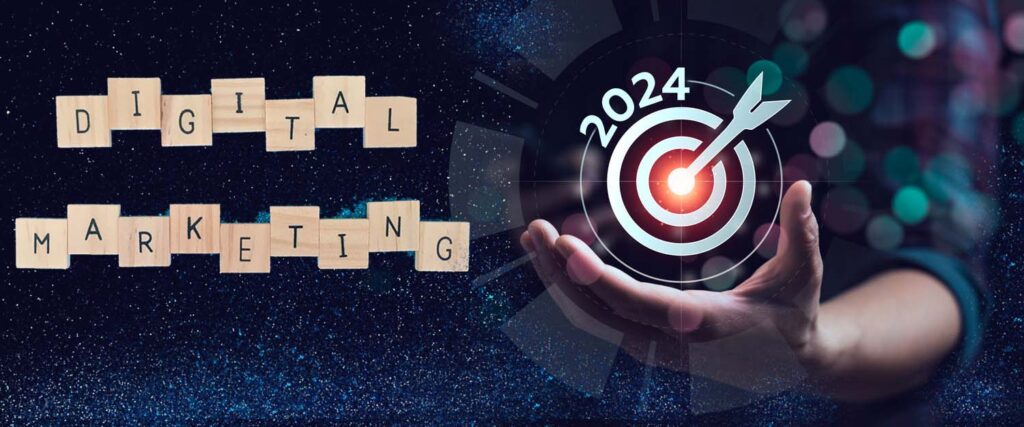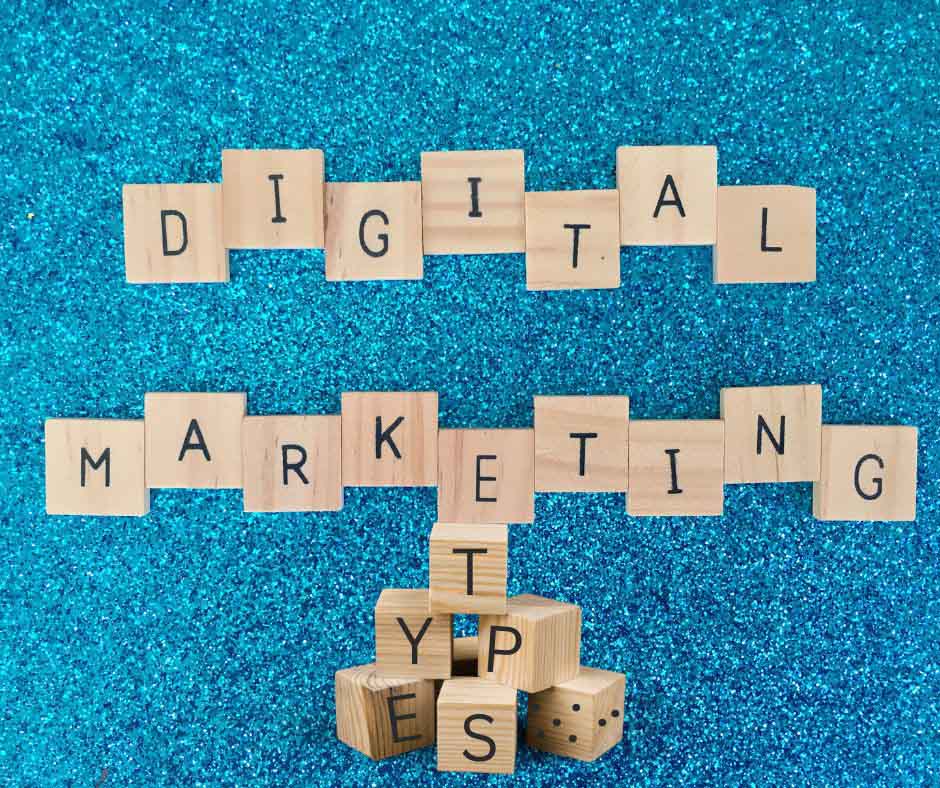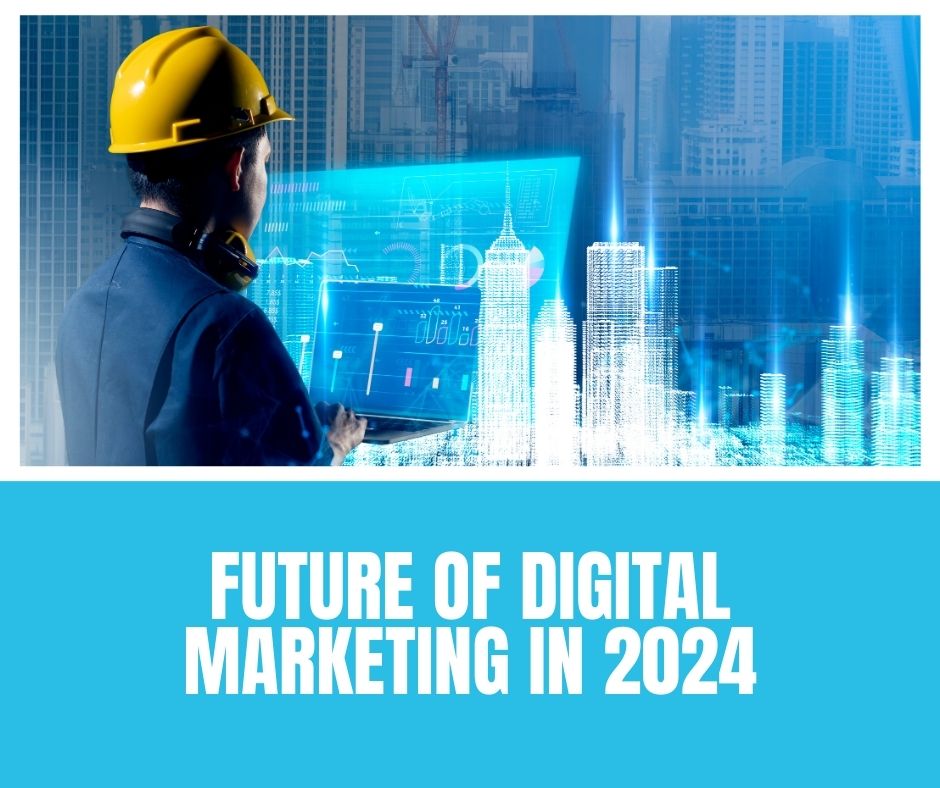
What is digital marketing?
Digital marketing uses digital technologies to promote products or services to consumers and businesses. It encompasses various activities, including search engine optimization (SEO), social media marketing, content marketing, email marketing, and pay-per-click (PPC) advertising.
Digital marketing is important because it allows businesses to reach their target audience where they are spending their time online. It also provides businesses with a way to track and measure the results of their marketing campaigns, which can help them to improve their efficiency and effectiveness.
Digital marketing can be a complex and ever-changing field, but it is an essential tool for businesses of all sizes. Using digital marketing effectively, you can reach more customers, grow your brand, and boost your sales.
The importance of digital marketing
Digital marketing is important because it allows businesses to reach their target audience where they are spending their time online. It also provides businesses with a way to track and measure the results of their marketing campaigns, which can help them to improve their efficiency and effectiveness.
Here are some of the critical benefits of digital marketing:
- Reach your target audience: Digital marketing allows you to reach your target audience where they spend their time online. For example, if you are targeting millennials, you can use social media platforms like Instagram and Snapchat to reach them.
- Track and measure your results: Digital marketing allows you to track and measure the results of your marketing campaigns. This can help you to see what is working and what is not so that you can improve your campaigns over time.
- Cost-effective: Digital marketing can be more cost-effective than traditional marketing methods, such as print advertising and television commercials.
- Personalize your messages: Digital marketing allows you to personalize your marketing messages to your target audience. This can help you to increase engagement and conversions.
Overall, digital marketing is an essential tool for businesses of all sizes. Using digital marketing effectively, you can reach more customers, grow your brand, and boost your sales.
Here are some specific examples of how businesses can use digital marketing to achieve their goals:
- Small businesses can use social media marketing to connect with potential customers and promote their products or services.
- A medium-sized business can use SEO to improve their website’s ranking in search engine results pages, which can help them attract more visitors.
- A large enterprise can use PPC advertising to drive traffic to its website and generate leads.
Regardless of your business size or goals, digital marketing can help you achieve them.
The different types of digital marketing

There are many different types of digital marketing, but some of the most common include:
- Search engine optimization (SEO): SEO is optimizing your website and its content to rank higher in search engine results pages (SERPs). This can help you attract more website visitors and increase your brand awareness.
- Social media marketing: Social media marketing involves using social media platforms, such as Facebook, Instagram, and Twitter, to connect with your target audience and promote your products or services.
- Content marketing: Content marketing involves creating and distributing valuable, relevant, consistent content to attract and retain a clearly defined audience and drive profitable customer action.
- Email marketing: Email marketing involves sending promotional emails to your subscribers. This can be a great way to stay in touch with your customers and promote new products or services.
- Pay-per-click (PPC) advertising: PPC advertising is online advertising where you pay each time someone clicks on your ad. This can be a great way to reach your target audience and drive traffic to your website.
Other types of digital marketing include:
- Affiliate marketing: Affiliate marketing is performance-based marketing where you promote other people’s products or services and earn a commission on each sale you generate.
- Display advertising: Display advertising involves placing ads on other websites. This can be an excellent way to reach a large audience, but it is crucial to choose your placement carefully to ensure that the right people see your ads.
- Video marketing: Video marketing involves creating and sharing videos to promote your products or services. Video can be a very effective way to engage your audience and tell your brand story.
- Native advertising: Native advertising is a type of advertising that blends in with the surrounding content. This can be a very effective way to reach your target audience without being too disruptive.
No matter your business goals, there is a type of digital marketing that can help you achieve them. The key is choosing the suitable types of digital marketing for your business and implementing them effectively.
Here are some tips for choosing the suitable types of digital marketing for your business:
- Consider your target audience. What kinds of digital marketing channels do they use?
- Consider your budget. Some types of digital marketing, such as PPC advertising, can be expensive.
- Consider your goals. What are you trying to achieve with your digital marketing campaigns?
Once you have considered these factors, you can choose the suitable types of digital marketing for your business.
The Future of Digital Marketing in 2024

Digital marketing is constantly evolving, and new trends emerge all the time. In 2024, we can expect to see several key trends shaping the digital marketing landscape, including the rise of artificial intelligence (AI), the growth of social commerce, the importance of personalization, and the increasing focus on customer experience.
The rise of artificial intelligence (AI)
AI is already significantly impacting digital marketing, and its role is only expected to grow in the coming years. AI can be used to automate tasks, personalize experiences, and optimize campaigns in ways that were never before possible.
For example, AI can automate social media posting, ad targeting, and email marketing tasks. AI can free up marketers to focus on more strategic initiatives. AI can also be used to personalize experiences for individual customers. For example, AI can recommend products, create custom content, and deliver targeted offers.
Finally, AI can be used to optimize campaigns in real-time. For example, AI can adjust ad bids and targeting based on performance data. This can help marketers to get the most out of their budgets and achieve their desired results.
The growth of social commerce
Social commerce is buying and selling products and services directly on social media platforms. Social business is increasing and is expected to become a major force in digital marketing in 2024.
Many factors are driving the growth of social commerce. First, social media platforms are becoming increasingly integrated with e-commerce platforms. This makes it easier for consumers to buy products and services directly on social media. Second, social media platforms increasingly offer features that make it easier for businesses to sell products and services, such as shoppable posts and checkout buttons.
Third, consumers are becoming more comfortable buying products and services on social media. This is due in part to the fact that social media platforms have become trusted sources of information and recommendations.
Businesses can capitalize on the growth of social commerce by creating engaging content, running social media ads, and offering social-exclusive discounts and promotions.
The importance of personalization
Personalization is becoming increasingly important in digital marketing. Consumers expect businesses to understand their needs and preferences and want to see relevant and personalized marketing messages.
Businesses can personalize their marketing messages in many ways. For example, they can use data to segment their audience and send targeted messages to each segment. They can also use AI to personalize content and offers.
Personalization can lead to several business benefits, including increased engagement, higher conversion rates, and greater customer loyalty.
The increasing focus on customer experience
Customer experience is becoming a top priority for businesses of all sizes. Companies realize that they need to provide a positive and seamless customer experience across all channels, including digital marketing.
Businesses must create personalized and relevant content, make it easy for customers to find the information they need, and provide responsive and helpful customer support to improve the customer experience.
Businesses can also use digital marketing to improve the customer experience. For example, they can use chatbots to provide 24/7 customer support, social media to answer customer questions, and email marketing to keep customers updated on new products and services.
Tips for businesses that want to succeed in digital marketing in 2024
Here are some tips for businesses that want to succeed in digital marketing in 2024:
- Embrace AI. AI is a powerful tool that can help you automate tasks, personalize experiences, and optimize campaigns.
- Invest in social commerce. Social commerce is growing and is expected to become a major force in digital marketing in 2024.
- Focus on personalization. Consumers expect businesses to understand their needs and preferences and want to see relevant and personalized marketing messages.
- Improve the customer experience. Create personalized and relevant content, make it easy for customers to find the information they need, and provide responsive and helpful customer support.
By following these tips, you can set your business up for success in the future of digital marketing.
Conclusion
Digital marketing is the promotion of products or services using digital technologies, such as the Internet, mobile phones, and social media. In 2024, digital marketing will be shaped by the rise of artificial intelligence (AI), the growth of social commerce, the importance of personalization, and the increasing focus on customer experience.
The future of digital marketing is very bright. As technology evolves, we expect to see more innovative and effective ways to market online products and services.